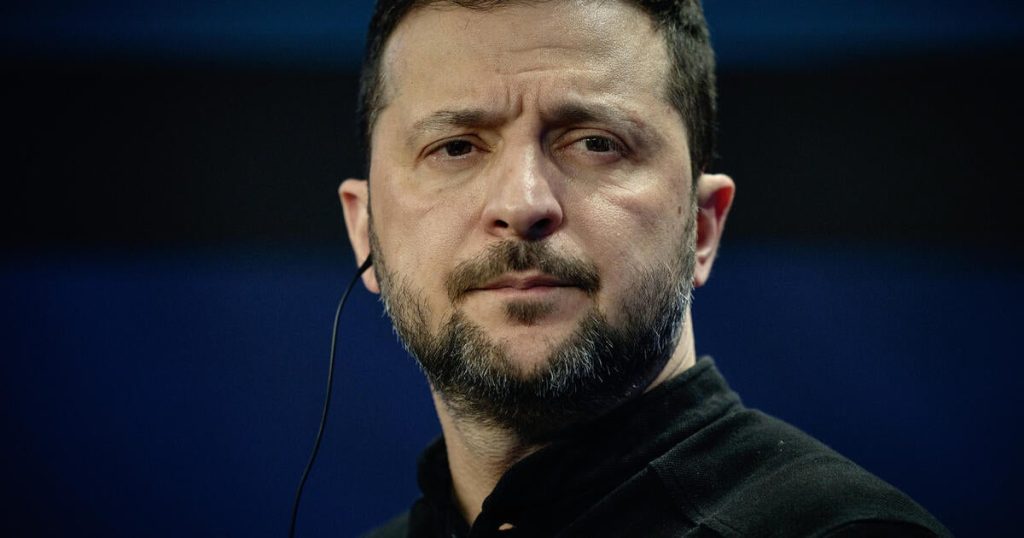On February 24, 2025, leaders from Europe and Canada converged in Kyiv to commemorate the three-year anniversary of Russia’s invasion of Ukraine. This gathering underscores steadfast support for Ukraine from its key allies during a tumultuous period marked by shifting international dynamics. Among the dignitaries present were European Commission President Ursula von der Leyen and Canadian Prime Minister Justin Trudeau, who engaged in discussions with Ukrainian President Volodymyr Zelenskyy regarding continued support and response to recent policy changes from the United States.
| Article Subheadings |
|---|
| 1) Commemorating Three Years of Resilience |
| 2) A Unified Front Against Adversity |
| 3) International Reactions to U.S. Policy Changes |
| 4) Continuing the Fight Against Aggression |
| 5) Ukraine’s Response to Ongoing Attacks |
Commemorating Three Years of Resilience
As the leaders gathered in Kyiv, the event marked a significant emotional moment for the Ukrainian people and their supporters around the world. It was three years since Russia launched a full-scale invasion of Ukraine, an act that has led to profound changes in international relations and security policies. The reverberations of this conflict have been felt globally, compelling numerous countries to reassess their military and diplomatic strategies. During the visit, Ukrainian officials, including Foreign Minister Andrii Sybiha and Chief of Staff Andrii Yermak, welcomed the leaders at the railway station, further emphasizing Ukraine’s importance on the European continent.
A Unified Front Against Adversity
The Ukrainian leadership, along with key European figures, reiterated their commitment to supporting Ukraine amid potentially shifting allegiances, especially considering the evolving stance of the United States under President Donald Trump. During her address, Ursula von der Leyen stated emphatically that “Europe was in Kyiv because Ukraine is in Europe.” This expression of solidarity reflects a recognition that Ukraine’s fate is closely tied to European security and governance. The discussions also aimed to reaffirm unity among European nations and Canada as they strategize on maintaining support for Ukraine amidst the uncertain geopolitical situation.
International Reactions to U.S. Policy Changes
In light of President Trump’s attempts to alter the U.S. approach towards the ongoing conflict in Ukraine, there has been mounting concern among European leaders regarding the implications of such changes. Recent reports indicated that the president is pursuing meetings with Russian President Vladimir Putin, a move that has provoked skepticism and apprehension among Ukraine’s allies about a potential softening of their stance against Russian aggression. Antonio Costa, President of the European Council, announced an emergency summit for early March to address these shifts in U.S. policy, emphasizing that “we are living a defining moment for Ukraine and European security.”
Continuing the Fight Against Aggression
As tensions rise and the possibility of a diplomatic resolution looms, Europe has continued to support Ukraine through increased sanctions against Russia. Reports indicated that the United Kingdom was prepared to announce significant new sanctions aimed at dismantling Russia’s military capabilities and cutting off funding sources for the ongoing conflict. David Lammy, the British Foreign Secretary, described this new package as the largest since the inception of the conflict. European leaders, including Keir Starmer and Emmanuel Macron, also expressed the urgency of convincing the Trump administration to remain steadfast in its support for Ukraine, insisting that the conflict must not be resolved at Ukraine’s expense.
Ukraine’s Response to Ongoing Attacks
In conjunction with the commemorative events, Ukraine has faced intensified attacks from Russian forces. On the eve of the anniversary, Ukrainian air defenses successfully intercepted a staggering 113 out of 267 drones launched by Russia. The Ukrainian Air Force reported that these assaults targeted multiple regions including Dnipropetrovsk, Odessa, Kyiv, and Khmelnytskyi, causing significant damage and loss of life. President Volodymyr Zelenskyy described this assault as not only the largest attack by Iranian drones but also as a stark reminder of the persistent threats Ukraine faces. This ongoing confrontation underscores the need for continued military support and raises questions about the effectiveness of Ukraine’s air defense systems in repelling such coordinated offensives.
| No. | Key Points |
|---|---|
| 1 | Leaders from Europe and Canada commemorated three years since Russia’s invasion of Ukraine in February 2025. |
| 2 | European leaders emphasized Ukraine’s significance to European security during their visit. |
| 3 | Concerns arose over President Trump’s changing policy towards Ukraine, with implications for international support. |
| 4 | The UK announced significant new sanctions against Russia in response to ongoing aggression. |
| 5 | Ukraine reported a record number of drone attacks from Russia, prompting further discussions on military support. |
Summary
The gathering of European and Canadian leaders in Kyiv on the third anniversary of Russia’s invasion underscores an unwavering commitment to supporting Ukraine amidst a volatile geopolitical landscape. As concerns mount regarding shifts in U.S. foreign policy, the event serves as a critical reminder of the collective responsibility to uphold Ukraine’s sovereignty and security. Continued dialogue and unified responses are paramount as Ukraine faces ongoing military aggressions, prompting allies to adapt their strategies for comprehensive support.
Frequently Asked Questions
Question: Why were European and Canadian leaders present in Kyiv?
European and Canadian leaders convened in Kyiv to commemorate the third anniversary of Russia’s invasion and to reaffirm their support for Ukraine amid changing international circumstances.
Question: What were the implications of President Trump’s policy on Ukraine?
President Trump’s potential shift in U.S. policy towards Ukraine has raised concerns among European leaders about the ramifications for Ukraine’s sovereignty and international alliances in the face of Russian aggression.
Question: What actions are being taken against Russia following its latest military actions?
In light of recent escalations, countries like the UK have announced new sanctions aimed at crippling Russia’s military capabilities and decreasing its financial resources for ongoing warfare.


